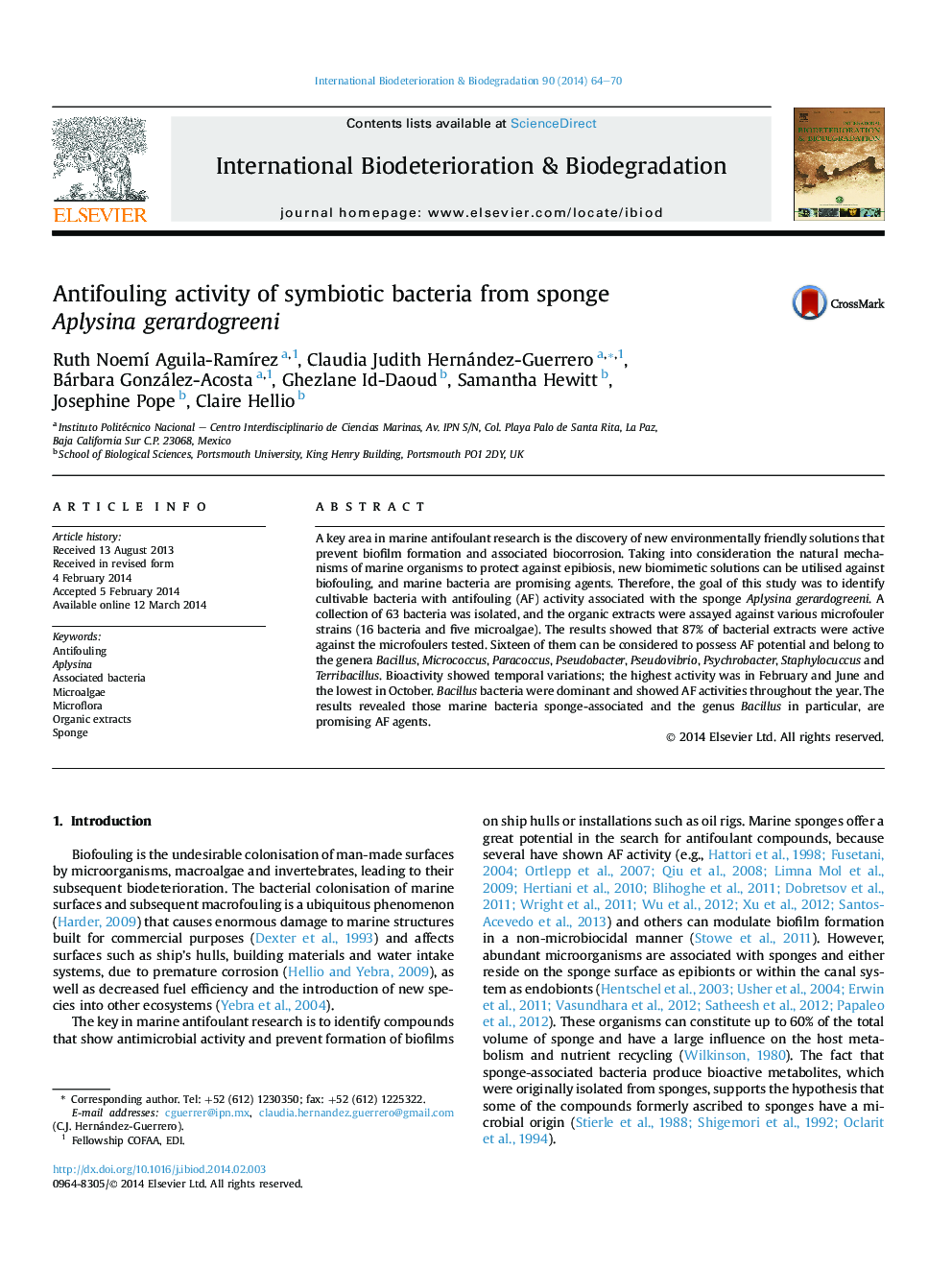| Article ID | Journal | Published Year | Pages | File Type |
|---|---|---|---|---|
| 4364787 | International Biodeterioration & Biodegradation | 2014 | 7 Pages |
•Isolation of sponge-associated bacteria with antifouling activity.•Identification of strains of bacteria with antifouling activity.•The results showed that 87% of bacterial extracts were active against the microfoulers tested.•Eight bacteria genera showed antifouling activity.•The bacteria of the genus Bacillus showed the best antifouling activity.
A key area in marine antifoulant research is the discovery of new environmentally friendly solutions that prevent biofilm formation and associated biocorrosion. Taking into consideration the natural mechanisms of marine organisms to protect against epibiosis, new biomimetic solutions can be utilised against biofouling, and marine bacteria are promising agents. Therefore, the goal of this study was to identify cultivable bacteria with antifouling (AF) activity associated with the sponge Aplysina gerardogreeni. A collection of 63 bacteria was isolated, and the organic extracts were assayed against various microfouler strains (16 bacteria and five microalgae). The results showed that 87% of bacterial extracts were active against the microfoulers tested. Sixteen of them can be considered to possess AF potential and belong to the genera Bacillus, Micrococcus, Paracoccus, Pseudobacter, Pseudovibrio, Psychrobacter, Staphylocuccus and Terribacillus. Bioactivity showed temporal variations; the highest activity was in February and June and the lowest in October. Bacillus bacteria were dominant and showed AF activities throughout the year. The results revealed those marine bacteria sponge-associated and the genus Bacillus in particular, are promising AF agents.
